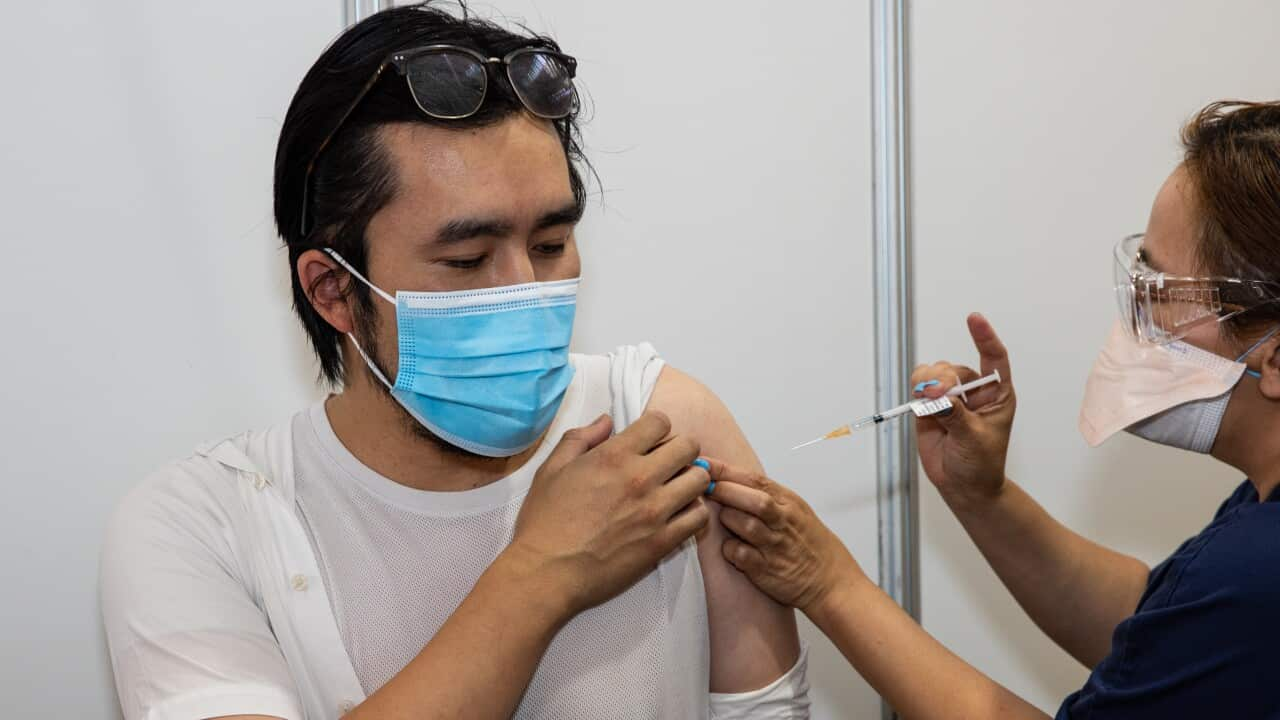Key Points
- Australia's COVID-19 vaccination program is expanding, with adults soon eligible for another booster.
- Over 18s who have not been infected or vaccinated in six months can get a booster from 20 February.
- Experts say those who have had COVID-19 multiple times are not immune to new and emerging strains.
All adults in Australia who have not had a COVID-19 booster or contracted the virus in the past six months will now be eligible for an additional vaccine dose from 20 February.
For some people, this will be a fourth dose, while for others it will be a fifth.
The , following advice from the Australian Technical Advisory Group on Immunisation (ATAGI).
But if you have had COVID-19 multiple times before, do you have increased immunity from the virus, or do you still need to get another booster?
Immunity 'wanes over time'
While contracting and recovering from COVID-19 can equip your body with antibodies - resulting in temporary protection from the virus - this does not last in the long term.
Paul Griffin, infectious disease physician and clinical microbiologist, said that immunity obtained from previous vaccinations or infections is also unlikely to be effective against new variants.
"Protection falls away or wanes over time, that happens with protection from vaccination as well as protection from past infection," he told SBS News.
"But the virus has also changed ... and what that means is any protection generated against previous variants or subvariants provides protection that is not as good against the variants or subvariants that we're seeing circulate at the moment."

Federal Health Minister Mark Butler said booster uptake was more than 70 per cent among people aged between 65 and 80. Source: AAP / DIEGO FEDELE
"Immunity wanes from both infection and vaccination," she told SBS News.
"The strongest protection is if you've had both, but of course, if you've had neither within the last six months, you really are much more vulnerable."
Why do we need to keep getting vaccinated?
On Wednesday, Health Minister Mark Butler said booster uptake was more than 70 per cent among people aged between 65 and 80, but uptake in the 50 to 64 cohort was "substantially lower".
Experts say many of the vaccinations that were rolled out in the earlier stages of the pandemic were created based on virus strains such as Delta or Omicron.
Larisa Labzin, an immunologist at the University of Queensland, said the changing nature of the virus means it is important to continue updating vaccines.
"The way vaccines work is we have this fortunate thing called immune memory; once we've been infected with something, our immune system doesn't forget how to fight it ... that's the reason that usually, if we've survived an infection, theoretically we're never going to get it again as rough as the first time," she told SBS News.
"But if it was the case (with COVID-19) that if you've been infected once, you were protected, you wouldn't have multiple infections."
Dr Labzin said people who have been infected with earlier strains of the virus will not necessarily have immunity from the emerging strains.
"That's why they're recommending that if you were last infected or vaccinated over six months ago, you should consider the booster.
"Each time our immune system sees the virus or vaccine, they make better antibodies ... whether these are going to be enough to capture these it's hard to know exactly, but you're certainly going to give yourself a much better chance of being able to do that with these booster vaccines."
What is the future of COVID-19 vaccination?
Getting vaccinated for COVID-19 is optional in Australia, but those who opted to remain unvaccinated previously faced limitations in where they could travel, attend events, and even work.
These restrictions have largely ended, and in the future, Associate Professor Griffin said COVID-19 vaccines may become an optional annual immunisation similar to influenza vaccines.
"These vaccines work tremendously well, and an additional booster dose really does increase that protection very effectively, but it's not going to provide lifelong protection.
"Like influenza, these types of viruses are very hard to get durable, lifelong protection ... there's likely to be regular updates required, so I think an annual booster is likely to be where we end up."
Professor Danchin says it is difficult to predict how the pandemic and vaccine programs will evolve.
"We need to be looking at the data at hand, responding to the circulating variants with COVID, how severe they are and what protection we need ... we just don't know."
"But what we do know is that if you're more than six months from your last COVID infection or vaccine dose, you really do need a booster."










